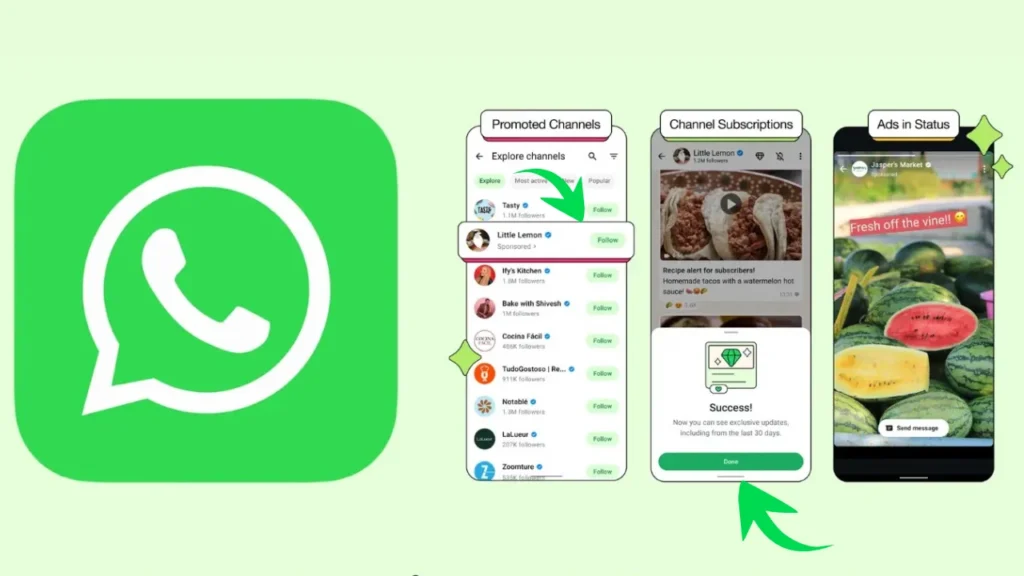WhatsApp has taken its first major step toward monetisation by introducing promoted content through its new “Channels” feature. WhatsApp Ads have now started appearing in the Status tab, where users follow updates from public figures, brands, and organisations. This marks the beginning of what may be a broader advertising strategy within the app.
Promoted Channels Appear Alongside User Status
Users across multiple regions have begun noticing channel suggestions labeled as “Promoted” within their Status tab. These suggested channels appear alongside friends’ status updates and do not require prior user interaction to be displayed. This method is similar to how Instagram and Facebook promote pages and content, except now it is tailored to WhatsApp private and minimal interface.
The promoted channels are being displayed without any audio or visual interruption. Instead of traditional video or banner ads, users are seeing suggestions to follow channels that offer updates, news, entertainment, or influencer content. Each promoted suggestion includes a “Follow” button, making it easier to subscribe with one tap.
Meta Gradual Expansion of WhatsApp Monetisation
Meta, WhatsApp parent company, has long looked for ways to generate revenue from its most widely used messaging platform. With over 2 billion global users, WhatsApp has so far remained ad-free within personal and group chats. However, the new approach allows Meta to ease into advertising by promoting discoverable content rather than introducing ads directly into conversations.
This update aligns with Meta growing emphasis on turning WhatsApp into a multi-utility platform. Features such as Business Chat, Payments, and Channels have gradually transformed the app into more than just a private messaging tool.
Users React to Advertising Integration
Initial user feedback remains mixed. While some appreciate the non-intrusive design, others express concern about the platform losing its ad-free identity. Many users fear that the integration of promoted content could eventually expand into more aggressive advertising within chats or calls.
Still, Meta appears cautious about the rollout. The promoted channels are currently limited to selected users and regions, possibly as part of an A/B testing strategy. If engagement remains positive, the feature is expected to expand globally over the coming months.
The Future of WhatsApp as an Advertising Platform
Industry experts believe this move may be a gateway for more personalised content delivery on WhatsApp. By leveraging user preferences, Meta could refine how channels are recommended, making advertising more targeted and less disruptive.
As WhatsApp explores monetisation through subtle channel promotions, it maintains its commitment to user privacy by not scanning or targeting ads based on private chats. Whether users embrace this shift will determine how far Meta goes in turning WhatsApp into a content and commerce hub.



















